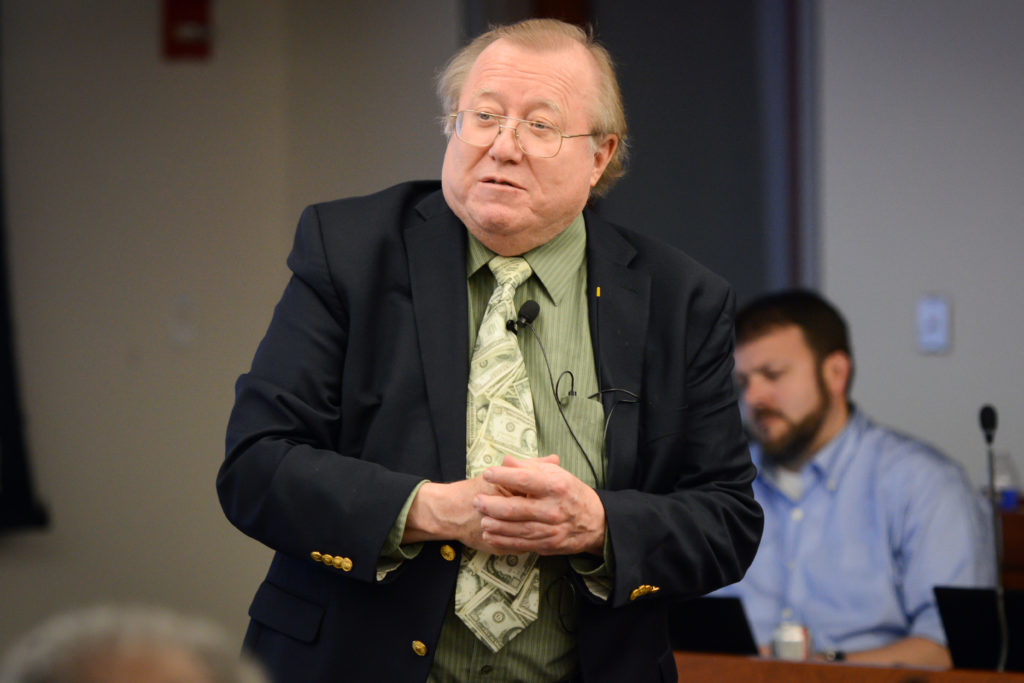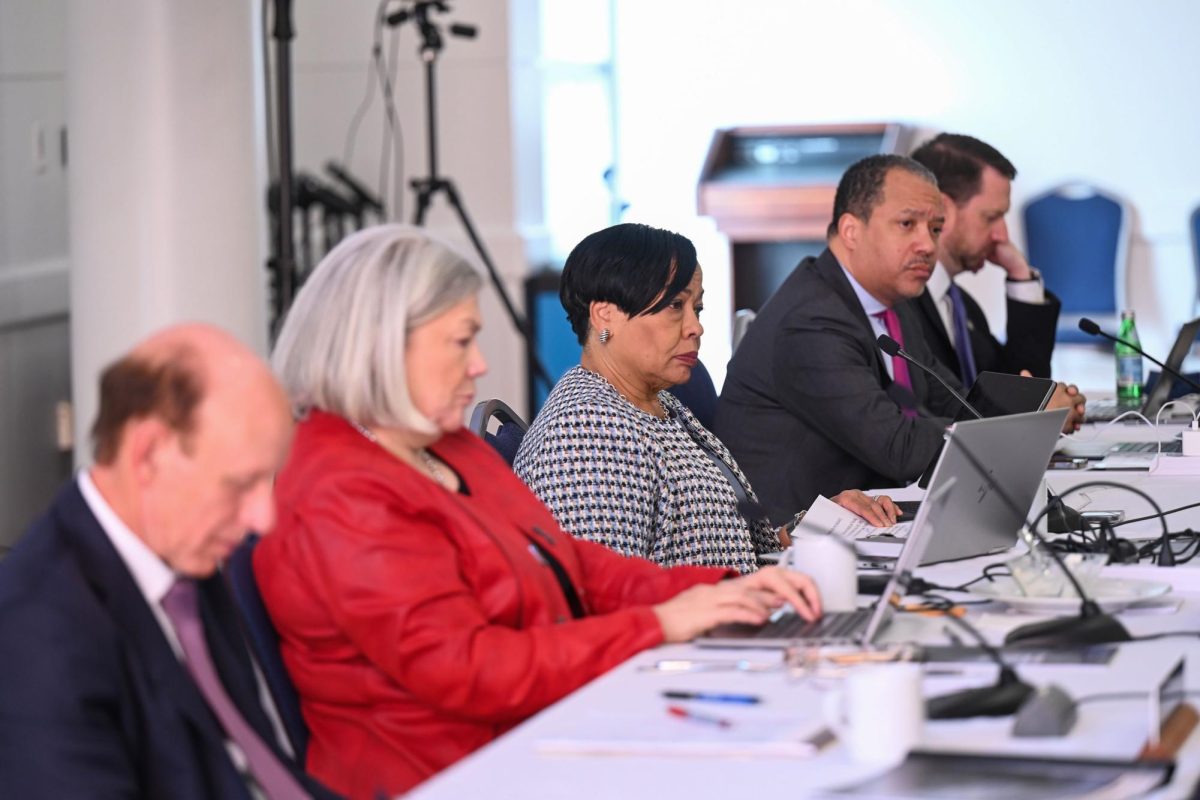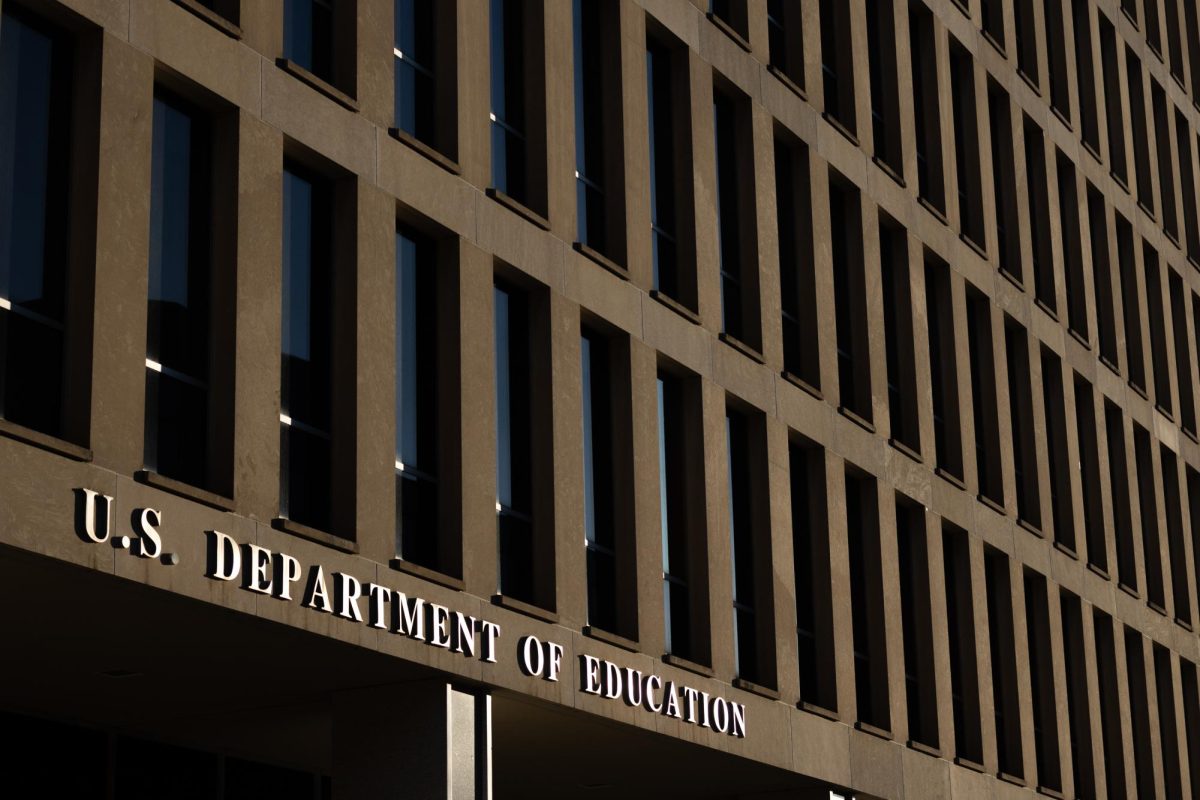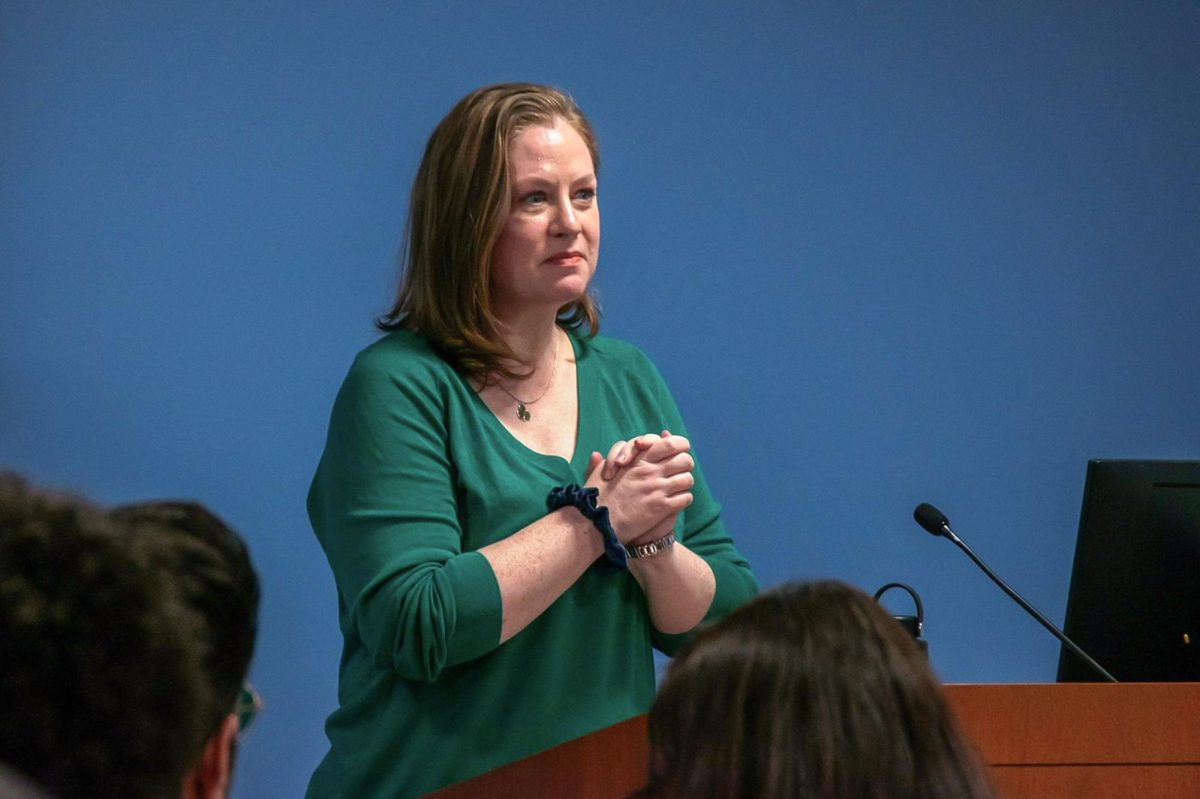GW’s net worth decreased by about $300 million from fiscal year 2021 to 2022, according to a report on the University’s budget presented at a Faculty Senate meeting last week.
Joe Cordes, the co-chair of the Faculty Senate’s Fiscal Planning and Budgeting Committee, said the University’s net worth dropped from $5.27 billion in FY 2021 to $4.97 billion in FY 2022 following a shrink in the endowment. He said declining enrollment levels have jacked up tuition rates while inflation has also increased the University’s operating costs, signaling a “choppy” return to pre-COVID fiscal performance.
Cordes said the endowment drop is a factor in the net worth decrease because about half of GW’s endowment is in the stock market, which fell in 2022. He said the projected deficit of the Medical Faculty Associates of $55 million to $65 million and GW’s $200 million loan to the MFA to cover also docked the University’s net worth.
In December, credit rating company Moody’s Investors Service reaffirmed GW’s A1 rating from 2020, indicating a stable outlook for the next fiscal year.
“GW basically is a financially sound institution,” Cordes said at the meeting. “We have had to do some mitigation, but they give us improved operating results.”
GW’s tuition will increase from $62,110 to $64,700 in the next academic year and keep GW’s overall cost of attendance above $80,000.
He said graduate student revenue took a “sizable” dip because graduate programs began at an operating deficit in FY 2023 in July with expenses exceeding revenue, and the Office of the Provost paused hiring to mitigate the deficit for the fiscal year. He said GW retains 70 percent of its undergraduate and graduate tuition each fiscal year, but total student revenue from FY 2023 is $33 million below the projected amount as of the first quarter.
Total graduate student enrollment decreased from 15,205 students in the 2019-20 academic year to 14,383 students in the 2022-23 academic year.
He added that a decrease in graduate applications from China – which made up about 9.5 percent of total graduate enrollment in 2019 – contributed to the low graduate student revenue. International student enrollment from China dropped from 1,557 in 2020 to 1,100 in 2022, according to institutional data.
Cordes said he would not specify the graduate programs’ operating deficit during the meeting because it had been “addressed.”
“The story is that the challenges are still there,” Cordes said. “We’ve encountered similar challenges in FY 2024 that we’ve encountered for FY 2023. Inflation and expenses are still part of the story.”
Earlier in the Faculty Senate meeting, senators passed a resolution to add two nonvoting College of Professional Studies seats to the senate. Prior to the resolution, the CPS faculty were not represented in the senate because no CPS faculty are eligible to be tenured, a requirement for faculty senators, according to the Faculty Organization Plan.
The amended resolution gives the delegates voting rights in all senate committees they serve on except for the Executive Committee, a policy that will be reviewed in three years along with voting rights in regular and special meetings. Eighteen senators voted in favor of the amendment, eight voted against and one abstained from voting.
Guillermo Orti, a professor of biology and a co-chair of the Professional Ethics and Academic Freedom Committee, said his committee is not comfortable with the body depriving one school of representation because of their tenure status.
Eric Grynaviski, a faculty senator and a professor of political science and international affairs, voted against the resolution because he said nontenured faculty who have a more student-oriented perspective could distract the senate and its Executive Committee from initiatives related to faculty and GW’s educational mission.
“What worries me a little bit is that what I really want to have in FSEC is somebody that really represents both the faculty interests but also the educational mission of the university,” Grynaviski said.
Harald Griesshammer, a professor of physics and faculty senator, said the Faculty Senate should be representative of all full-time faculty because of the strong influence of its voice on shared governance compared to other universities.
“The very fact that we are discussing about the College of Professional Studies without anybody from the College of Professional Studies being here and having floor rights – I would actually have to request the senate for the right to a CPS representative to speak in this meeting – for today, it’s a very, very limited, tiny resolution, a fix that can be made, a voice that has not been heard,” Griesshammer said.
Emily Hammond, the vice provost for faculty affairs, delivered an annual salary equity review progress report, which identifies faculty with potential salary outliers to make the necessary salary adjustments by way of salary data and a pair of statistical models.
The report identified 31 faculty who were outliers in the Columbian College of Arts and Sciences as of August based on salary data, the most out of all schools, and made six salary adjustments. Officials identified 15 outliers in the Milken Institute School of Public Health and made 32 adjustments, the most out of all schools.
Hammond said the University uses factors like appointment status, market factors, rank at the time of hire and retention adjustments to analyze salaries. She said officials also examine professors who might not execute their roles at the expected level and receive a low salary in accordance with their underperformance.
“I still think there’s work to be done in mentoring faculty and having deans and associate deans working with chronic underperformers and bringing that up,” Hammond said.











